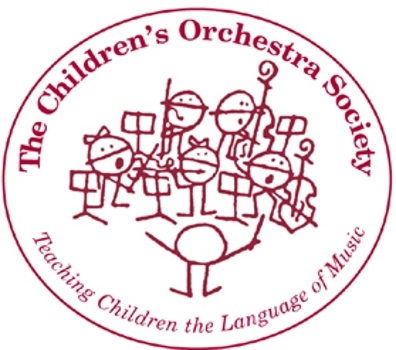Browse for scores, CDs, DVDs
M 1000 - collections, two or more composers
M 1001 - Orchestral symphonies
M 1002 - Symphonic poems
M 1003 - Suites and cyclical works for orchestra
M 1004 - Overtures
M 1005-1039 - Solo instrument with orchestra
M 1040-1041 - Two or more instruments soloing with orchestra
M 1042 - Concertos for orchestra
M 1060-1075 - Arrangements for orchestra
Featured Video Clip
Utah Valley Youth Symphony's Philharmonia Orchestra plays Polovetsian Dances from "Prince Igor" at Abravanel Hall, Salt Lake City, Utah March 3, 2014. Conducted by Cheung Chau.
Reference Works
-
 American Orchestral Music: A Performance Catalog
by
It is the purpose of this catalog to provide conductors, music directors, managers and orchestra librarians with a practical and accessible source about American orchestral compositions.
Call Number: ML 128 .O5 K67 1992 (Reference collection)
American Orchestral Music: A Performance Catalog
by
It is the purpose of this catalog to provide conductors, music directors, managers and orchestra librarians with a practical and accessible source about American orchestral compositions.
Call Number: ML 128 .O5 K67 1992 (Reference collection) -
Chamber Orchestra and Ensemble Repertoire by Find the right music at the right time for the right purpose. This book will prove invaluable to contemporary music ensembles as well as chamber orchestras.
Call Number: ML 128 .O5 M49 2011 (Reference Collection)ISBN: 0810877317Publication Date: 2011-02-11 -
Great Music for String Orchestra by Intermediate and advanced repertoire highlighting 100 of the best compositions and arrangements in print. Annotated in detail: metric and key design, performance and program notes, alternate choices of music. Represents all styles of classical and popular music.
Call Number: ML 128 .S7 T36 2011 (Reference collection)ISBN: 9781574631616Publication Date: 2011-01-01
Check these books out!
-
ASTA String Curriculum by Based on the outstanding teaching traditions in the field and the contributions of many earlier authors, educators, and researchers, this curriculum contains useful and practical information for string teachers from every level of experience.
Call Number: on orderISBN: 0615439012Publication Date: 2011-03-01 -
Strategies for Teaching Strings by An essential guide for prospective, novice, and experienced string teachers alike. Now featuring an integrated DVD, this comprehensive text provides all the information necessary to develop and manage a successful school-based program.
Call Number: MT 730 .H35 S77 2009ISBN: 9780195369120Publication Date: 2008-11-12 -
The Orchestral Violinist's Companion by This volume imparts knowledge and skills essential for the orchestral violinist, extending on the musician's high school or university education. This advice and training manual is intended to serve as a guide for the full course of a musician's career - from the preparation for an audition to the long-term heavy work load in an orchestra.
Call Number: MT 266 .W85 2012 vol.1-2ISBN: 3761817584 -
Fiddlers Philharmonic, Teacher's Score by Traditional Fiddling in the String Orchestra.
Call Number: MT 279.58 .D33 F52 1996ISBN: 0739008897Publication Date: 1996-04-01
Performing Arts Librarian
Helpful websites
-
 The Children's Orchestra Society
Our mission is to cultivate and nurture children and teach them teamwork and life skills through music-learning and performing in orchestral and chamber music settings. Members of COS receive excellent training in classical music and opportunities to perform in concerts with their peers as well as with well-established musicians.
The Children's Orchestra Society
Our mission is to cultivate and nurture children and teach them teamwork and life skills through music-learning and performing in orchestral and chamber music settings. Members of COS receive excellent training in classical music and opportunities to perform in concerts with their peers as well as with well-established musicians.
-
 J. W. Pepper Music
J.W. Pepper & Son, Inc. is a privately owned, American sheet music retailer based in Paoli, Pennsylvania. They provide music for concert band, marching band and jazz band.
J. W. Pepper Music
J.W. Pepper & Son, Inc. is a privately owned, American sheet music retailer based in Paoli, Pennsylvania. They provide music for concert band, marching band and jazz band.
-
 Alfred Music
You may find this website a tremendous resource as you look for new music and favorite classics for your ensemble. Over 2000 titles for band.
Alfred Music
You may find this website a tremendous resource as you look for new music and favorite classics for your ensemble. Over 2000 titles for band.
-
 Orchestra Classroom
Angela Harman, orchestra teacher in Spanish Fork, UT, offers a source for awesome ideas and time-saving printable resources.
Orchestra Classroom
Angela Harman, orchestra teacher in Spanish Fork, UT, offers a source for awesome ideas and time-saving printable resources.
Orchestra Participation Teaches Kids
Taken from an article by Christine LaPierre for the Mount Royal Conservatory
Did you know that participating in orchestra will teach your children important team-building skills that will last them a lifetime?
A good orchestra leader emulates what a good team leader does to keep his team focused on reaching their goal. Here are a few that I observed:
- He told the truth so the children knew exactly where they stood.
- He created a supportive learning environment.
- He had many different purposeful ways of doing this.
- He made it clear to them what each part of the orchestra was doing and brought it all together with synergy.
- He praised when it was due and used his facial expressions and body language to communicate his ideas in a consistent manner.
- When he gave admonishments, he did so in a positive, uplifting manner and the children responded with greater self-control.
- He encouraged them to try their best and how to overcome pitfalls.
As a leader, he made the children accountable for their role in the orchestra. After playing a difficult part of the piece, he asked, ”Does it work?” The children were able to assess themselves and their progress.
